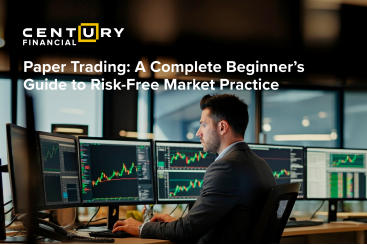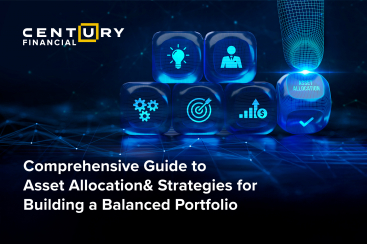
.jpg)
Halal in Arabic means lawful or permitted. Often referred to as food, it also describes investments that are allowed within the faith of Islam. It is a form of investing that follows the requirements of Shariah law and the principles of Islam.
The tenets of Sharia law on investment advocate for a balance between the individual and the society.
Islamic scholars have shaped the guidelines for halal investing to consider topics like interest, debt, risk and social responsibility. In many ways, it would be safer to consider halal investing as a specialized form of socially responsible investing. And in today’s community first thinking, ethical and responsible investing is becoming popular among investors that wish to make investments based on their values and beliefs.
So, a Sharia compliant stock would need to be:
.jpg)



So, companies that earn their revenues through alcohol, tobacco, gambling, fast food, fossil fuels and weapon manufacturing would not be a part of its halal trading strategy. Additionally, it ensures you are not investing in companies with significant interest income or debt. A halal trader will likely select a company that takes into consideration the various environmental, social, and ethical factors when creating a process strategy while promoting corporate governance and shareholder advocacy.
Factors to consider when investing in Halal stocks
As Halal trading is interlinked with Sharia law, it must be screened to check if it complies with its rules. So, as an investor, if you wish to purchase Halal stocks, you need to do your research, check through company websites, and see what their business comprises. You need to further take a look at their trading practices and sources of income.
The requirement for an investor is to conduct quantitative and qualitative assessments and check to see how the company operates. Say, you wanted to invest in a company that buys and sells vegetables and fruits. This seems good as it adheres to Islamic law. However, when you do your research, you find out a small part of their business is also about making wines. This goes against Sharia principles. So it would not be deemed halal if you were to invest in such a company.
In halal trading, even companies whose finances are dependent or revolve around interest-based activities must be avoided. Riba, the Arabic word for interest, is strictly prohibited under Sharia law. This would require you to check for the kind of services a company has to offer and ensure the company does not pay or receive interest in any manner.
It is always advisable for investors to track their stocks. But it is essential to take extra interest when it comes to halal stocks. Remember, a company and its priorities keep on changing. So a company that began as halal would not necessarily continue to do so. Thus, it is always best to keep on tracking your stocks.
So, if you have any doubts about whether the company you are investing in is halal, please ask yourself the following questions:
Investment grade-deemed relatively secure by credit rating agencies
Relatively safer than equities
Dollar denominated investments offering +8% yield
Dollar denominated investments offering +8% yield
Earn Stable income through coupons till next call date
Quality Brand Names
Quality Brand Names
Benefits of investing in Halal stocks
One of the critical advantages of halal investing is that an investor is encouraged to follow an ethical investing approach while building their portfolio. It requires its investors to be diligent and conduct research on the companies they invest in. This, in turn, also makes the investor more disciplined and supports them to take a more considered investing approach to their money.
Additionally, through its very nature, under Sharia rules. Short-term trading is discouraged as it is considered gambling. What this ensures, you are taking less risk and ensuring long-term success.
As socially responsible investing continues gaining momentum, halal investing may have already shown the way for years.
لا تقدم شركة سنشري للإستشارات والتحليل المالي ش.ذ.م.م (الشركة) محتوى هذه المدونة، بما في ذلك أي أبحاث أو تحليلات أو آراء أو توقعات أو أي معلومات أخرى (يُشار إليها مجتمعةً باسم "المعلومات")، إلا لأغراض التسويق والتثقيف وإتاحة المعلومات العامة. ولا يُفسَّر ذلك على أنه نصيحة استثمارية أو توصية أو دعوة لشراء أو بيع أي أدوات مالية.
كما يجوز نشر هذه المعلومات عبر قنوات مختلفة، بما في ذلك موقع الشركة الإلكتروني، ومنصات الغير، والنشرات الإخبارية، والمواد التسويقية، ورسائل البريد الإلكتروني، ووسائل التواصل الاجتماعي، وتطبيقات المراسلة، والندوات الإلكترونية، وغيرها من وسائل التواصل. وبينما تسعى الشركة لضمان دقة المحتوى، فإنها لا تضمن اكتماله أو موثوقيته أو تحديثه في الوقت المناسب. وعليه، فأي قرارات تُتخذ بناءً على هذه المعلومات تكون على مسؤوليتك الشخصية. ولا تتحمل الشركة أي مسؤولية عن أي خسارة أو ضرر ناتج عن استخدامها.
ينطوي تداول المنتجات المالية على مخاطر كبيرة، بما لا يتناسب مع جميع المستثمرين. فيُرجى التأكد من وعيك التام بالمخاطر، وطلب الاستشارة المهنية المتخصصة إذا لزم الأمر.
يُرجى الاطلاع على بيان كشف المخاطر الشامل المتوفر على موقعنا الإلكتروني.
















